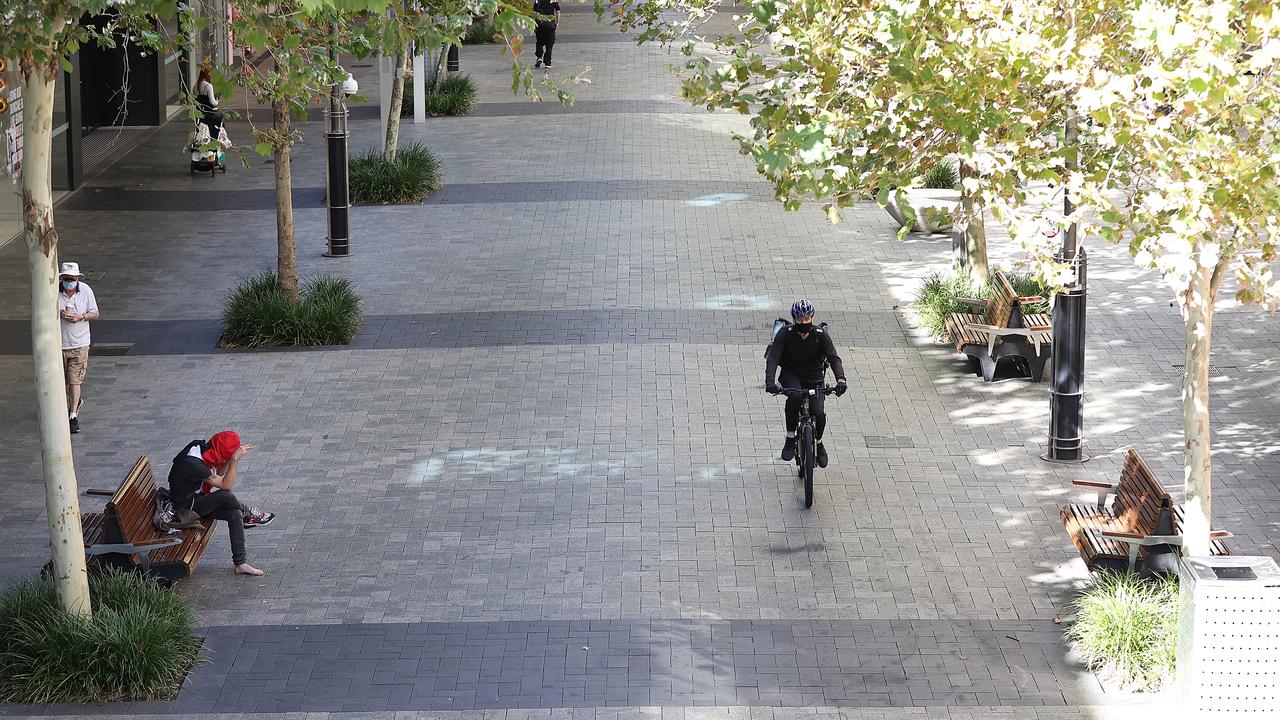Western Australia’s COVID-19 outbreak fails to spread, sparking debate over whether snap lockdowns are worth the economic pain
Days after millions of Perth residents were forced into lockdown, just one new case has been found, so are snap shutdowns worth the pain?

Short lockdowns to address COVID-19 outbreaks may not be worth the economic pain they inflict, with just one new locally acquired case identified in Western Australia since a three-day shutdown was introduced.
About two million residents in the Perth and Peel regions have been in lockdown since Friday, with the decision to introduce restrictions ahead of the Anzac Day long weekend meaning businesses lost up to $25 million in revenue, according to Restaurant and Catering Australia chief executive officer Wes Lambert.
Mr Lambert told ABC the timing meant businesses had to donate or throw away $7 million in produce and stock.
“Because it was Friday afternoon … they would’ve already been prepping for the weekend, they would’ve been making their stocks and soups and they would’ve already been grazing things,” Mr Lambert said.
It’s the second lockdown residents have endured this year, with a five-day lockdown of Perth and Peel in January lifted without any further cases being detected after a security guard working in hotel quarantine tested positive.
WA Premier Mark McGowan confirmed the lockdown would be lifted on Monday night and told reporters the lockdown had “delivered the results that we needed”.
“The short three day lockdown has done the job it was designed to do. It was a circuit breaker we needed to limit community spread and keep our community healthy,” he said.
However, infectious diseases expert Professor Peter Collignon told news.com.au he was not convinced short lockdowns had made much difference in controlling cases in WA or other states.
He said there had been several short lockdowns related to hotel quarantine breaches, including two in Perth, one in Adelaide, one in Melbourne and two in Auckland, New Zealand.
“As far as I can see, there have been no COVID cases found that were not close contacts of a known case, or someone who had been to a (exposure site) venue, and these contacts would normally already be asked to quarantine” he said.
RELATED: No new local cases in Western Australia

Prof Collignon acknowledged there were circumstances where a wider lockdown was necessary, for example, if there were a number of cases in the community for which there was no known source, but this hadn’t been the case so far.
“If Perth had had five or six cases where we didn’t know where they came from, (a lockdown may be necessary) but it didn’t have that,” Prof Collignon said.
Short lockdowns have been touted as a “circuit-breaker” to limit the contact people have with each other, which helps stop the spread of the virus, and give authorities time to get on top of the situation.
Prof Collignon said the contact tracers seemed to be the only ones helped by lockdowns, as it gave them more time to do their job: contacting everyone who may have been exposed to the disease and asking them to isolate before they could spread the virus.
“I don’t see that (short) lockdowns are making any difference to finding cases but there is a huge social and economic cost,” he said.
Prof Collignon said the WA lockdown had seen two million forced to stay home compared to just tens of thousands in NSW during an outbreak beginning in December last year.
In NSW only those in Sydney’s northern beaches were told to isolate as the state did not introduce a snap lockdown of the entire city.
Its approach focused on contact tracing and asked only those who had been in close contact with positive cases, or who had visited certain venues, to isolate.
“I think short lockdowns are very disruptive for almost no extra benefit in controlling the infection,” Prof Collignon said.
However, even the NSW approach has significant economic consequences, with KPMG modelling estimating the outbreak cost the state’s economy $3.2 billion in lost working hours in December.
RELATED: Border fury as new restrictions expected
Western Australia’s most recent lockdown was introduced after a man aged in his 50s was infected with COVID-19 while in hotel quarantine, although he was not diagnosed for many days after leaving.
He visited several locations in Perth over five days and gave the virus to a female friend who he stayed with, as well as someone who went to the same restaurant.
The man later tested positive after arriving in Melbourne on April 21.
The case has also raised questions about hotel quarantine practices, although WA Premier Mark McGowan has focused debate on whether the Commonwealth should take more responsibility for quarantining returned travellers.
“We’ve been shouldering, and the States have been shouldering, all the load in hotels that were never built for this purpose now for 14 months,” Mr McGowan said on Sunday.
Home Affairs Minister Karen Andrews has hit back at his comments saying Mr McGowan agreed to the existing quarantine system last March, The West Australian reported.
She said the Federal Government’s detention facilities and Australian Defence Force bases were not fit for quarantine and that Mr McGowan was “very much aware of that”.
Ms Andrews also noted that NSW was “doing extremely well with a significant number of returned travellers coming through” and that “maybe it’s time to make the call to Gladys Berejiklian to see what can be learnt by other Premiers and first Ministers”.
charis.chang@news.com.au | @charischang2




